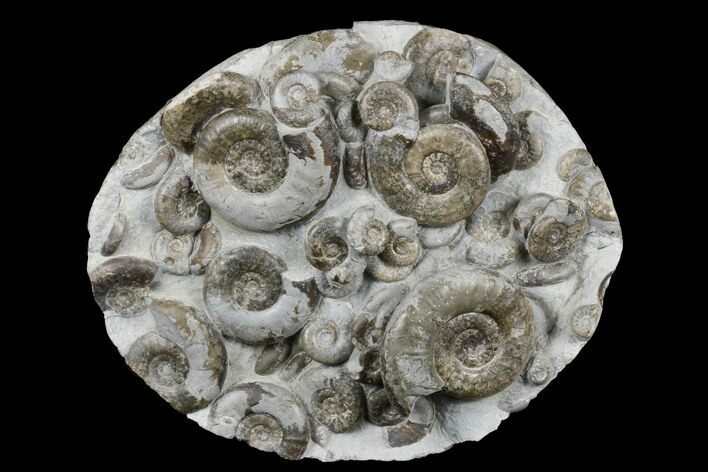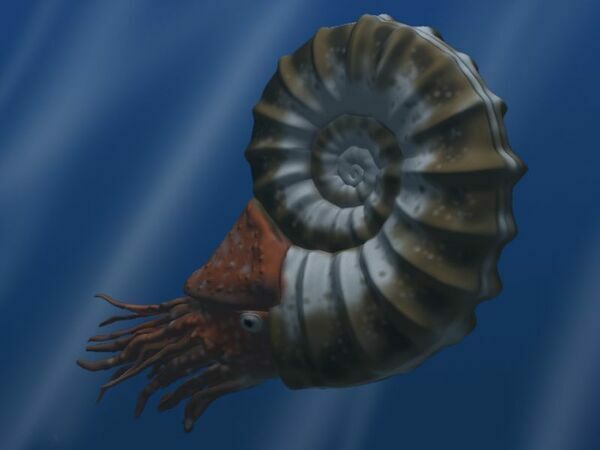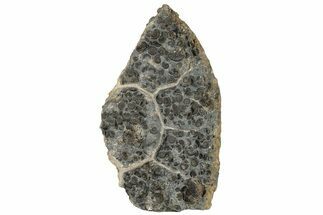This Specimen has been sold.
5.8" Fossil Ammonite (Psiloceras) Cluster - Holderness Coast, England
This is a 5.8" wide cluster of Lower Jurassic Psiloceras ammonites from the Holderness Coast in East Yorkshire England.
There are over twenty ammonites ranging from .4 to 1.75 inches across preserved within a concretion. It was painstakingly prepared with mechanical tools to expose all of the ammonites in high relief.
This piece comes out of the collection of the late Jeff Mulroy, a renown collector and preparitor of Yorkshire fossils.
Comes with a display stand.
There are over twenty ammonites ranging from .4 to 1.75 inches across preserved within a concretion. It was painstakingly prepared with mechanical tools to expose all of the ammonites in high relief.
This piece comes out of the collection of the late Jeff Mulroy, a renown collector and preparitor of Yorkshire fossils.
Comes with a display stand.
About Ammonites
Ammonites were ancient marine cephalopods, similar to today's squids and octopuses, but with a defining feature: their distinctive, tightly coiled spiral shells. These shells, resembling those of modern nautiluses, served as both a protective home and a buoyancy aid, allowing ammonites to navigate the prehistoric seas with ease. First emerging around 240 million years ago in the Triassic Period, ammonites thrived for over 175 million years, adapting through numerous forms and sizes. As predatory creatures, they likely fed on smaller marine organisms, using their tentacles to capture prey. However, their long reign came to an end 65 million years ago at the close of the Cretaceous, coinciding with the mass extinction event that also eliminated the dinosaurs.
Ammonites were ancient marine cephalopods, similar to today's squids and octopuses, but with a defining feature: their distinctive, tightly coiled spiral shells. These shells, resembling those of modern nautiluses, served as both a protective home and a buoyancy aid, allowing ammonites to navigate the prehistoric seas with ease. First emerging around 240 million years ago in the Triassic Period, ammonites thrived for over 175 million years, adapting through numerous forms and sizes. As predatory creatures, they likely fed on smaller marine organisms, using their tentacles to capture prey. However, their long reign came to an end 65 million years ago at the close of the Cretaceous, coinciding with the mass extinction event that also eliminated the dinosaurs.
SPECIES
Psiloceras cf. erguatum
LOCATION
Tunstall Beach, Holderness Coast, East Yorkshire, England
FORMATION
Planorbis Zone
SIZE
Cluster 5.8 x 4.85 x 2", Largest ammonite 1.75"
CATEGORY
SUB CATEGORY
ITEM
#176342
We guarantee the authenticity of all of our specimens.
 Reviews
Reviews















